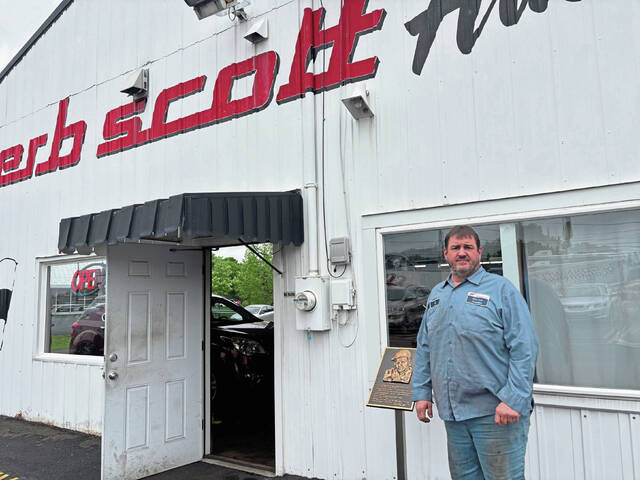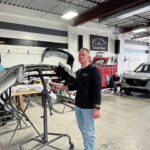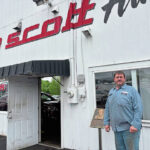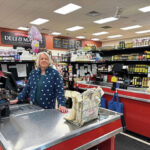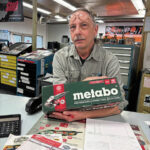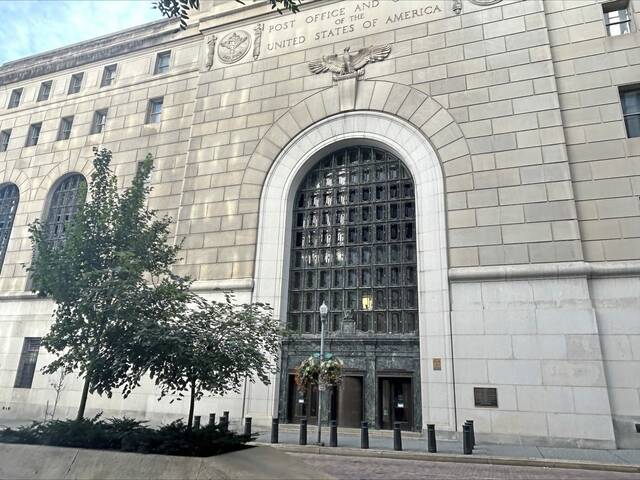As U.S. tariffs on foreign goods continue to fluctuate, local business owners are sharing their opinions and concerns.
The tariffs are part of President Donald Trump’s “Fair and Reciprocal Plan.” The plan is designed to counter nonreciprocal trading arrangements with trading partners by determining the equivalent of a reciprocal tariff with respect to each foreign trading partner, according to whitehouse.gov.
On May 12, the White House announced a 90-day decrease on tariffs between China and the United States.
For Chuck Eyerman, who owns Chuck’s Auto Body on 9455 Perry Highway in McCandless with his brother, he is taking a positive approach on any potential tariffs.
“I have not seen any changes as of yet,” Eyerman said in April. “I do not expect a price difference as much as maybe a supply chain issue and shortage of parts that come from China.”
Eyerman said aftermarket parts are made in China so his business could encounter shortages.
“It also would be a good thing for us, if I am being honest,” Eyerman said.
In his experience, parts from China are not the best quality. However, insurance companies use them because they are cheaper.
It probably will require shops like his to use more original manufacturer parts and used parts, both of which are better quality, he said.
“This is good for local salvage yards because we are keeping the business local and within the United States and, specifically, for us in Pennsylvania. So this actually may be to our benefit if it goes the way it is predicted,” he said.
Jordan Cherry, general manager at Pro Bike+Run, also is not too worried.
Pro Bike+Run has six locations in Pittsburgh and Western Pennsylvania, including in North Park.
“At the moment, we’re well stocked for the season, so current tariffs aren’t impacting us directly. We’ll continue to navigate any changes as they come and prioritize working with brands that maintain strong inventory levels,” said Cherry last month.
He doesn’t anticipate significant price increases anytime soon.
“We don’t set the prices for our products. Our manufacturers do,” Cherry said. “While we expect some manufacturers may raise prices, the impact on us should be minimal since only a small portion of our products come from China. We don’t anticipate significant price increases at this time.”
Cherry said while the issue of tariffs may be hard to navigate, it overall could be helpful.
“Tariffs are a complex issue, but in some cases they can be a useful tool to help support domestic industries and encourage fair trade. Ultimately, we hope for solutions that benefit both businesses and consumers in the long run,” he said.
Guido Farina, manager of Labriola Italian Markets in Marshall, gets many products from outside the U.S.
“We’re hoping they kind of get the tariffs figured out,” Farina said.
He said suppliers told him to stock up just in case until things get sorted out.
“They’re telling us, if we can, (to) buy a little extra now. We’re all very hopeful they’re getting fixed before we get to that point,” Farina said.
The store imports a lot of products from Italy, such as olive oils, and various cheeses like Parmesan, and pecorino Romano. Quality is important for his customers.
“They want the best of best for their family,” said Farina, adding prices so far remain steady.
“We’re still affordable,” he said.
Earl Schugar, who does sales for Saw Sales and Machinery Co. in Hampton, said he has about 500 to 1,000 vendors who have implemented procedures to accommodate the tariffs, usually resulting in some type of a price increase. But he said the vendors are trying their best to accommodate the stores they sell to.
Saw Sales and Machinery Co. is a service and supply company for commercial fabricators, primarily wooden and metal fabricators, pipeline companies and cabinet manufacturers, Schugar said. The supply store provides stock or custom tooling and supplies for machinery, among other things.
The shop gets its supply from vendors in the United States, but those vendors often get their product from other countries, Schugar said.
“The vendors are taking a lot of the hit. If they are hit with a 45% tariff, they’re hitting me with a 20% price,” he said.
“I have been noticing that my vendors have been working very hard to keep the distributors from taking the fall with price lists being reviewed week by week,” Schugar said.
He hasn’t yet seen many major changes as far as prices as of late April, adding it is his goal to keep customers happy and satisfied.
Ed Bordt, owner of Herb Scott Automotive auto repair in Pine, said he hasn’t really seen much of a difference yet. If anything, brakes and rotors, which are made in China, could go up. But even cars that are assembled in the United States still have parts that are made overseas.
While working at his shop in early May, he said he is more bothered that prices haven’t come down from the effects of the pandemic.
Bordt did say customers are opting for more repairs than buying, hoping to get a little more time out of their vehicle.
“They say, ‘We need it, so whatever it costs.’ We’ve been fixing a lot of things normally they wouldn’t because they don’t want to buy, because of interest,” said Bordt, who lives in Ohio Township.
Cynthia Sarver, president of Industrial Machine Works in Etna, said the tariffs aren’t going to affect them because they deal with companies that are U.S. manufacturers.
She thinks tariffs on foreign goods are a good thing for businesses like hers because it creates work for local steel mills in the United States.
“The raw or rare minerals we get from other countries, we’re already paying a hell of a lot in tariffs on the difference,” Sarver said.
Tom Watson, manager of McTighe’s Flower & Garden Market in Shaler, said they get a weekly shipment of flowers, herbs and plants from Canada. Aside from maybe a dollar increase once or twice, things haven’t changed, he said.
“We didn’t have to raise anything,” said Watson during a recent busy afternoon at the market. Some customers were waiting for parking spots to open up outside the store.
McTighe’s also has a drive-through beer distribution business right next to the market. Watson said they do have a few Canadian beers, like Labatt Brewing Co., which is headquartered in Ontario. But Labatt opened a U.S. brewing location in Rochester, N.Y., according to the company’s website, which means no tariffs, Watson said.
Overall, the beer distribution at McTighe’s has remained the same.
From a shopper’s point of view, Patty Cretella of Harmony, who works at Labriola Italian Markets, isn’t too worried about tariffs.
“I don’t really think about it,” she said.




